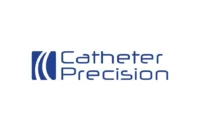REDWOOD CITY, Calif.–(BUSINESS WIRE)– HeartFlow today announced that Health Care Service Corporation (HCSC), which operates Blue Cross and Blue Shield plans in Illinois, Montana, New Mexico, Oklahoma and Texas, has issued a medical policy for the HeartFlow® FFRct Analysis, a first-of-its-kind non-invasive technology that helps clinicians diagnose and treat patients with suspected coronary artery disease (CAD). HCSC has determined that the use of noninvasive FFR following a positive coronary computed tomography (CT) angiogram may be considered medically necessary to guide decisions about the use of invasive coronary angiography in patients with stable chest pain at intermediate risk of CAD.
Additionally, BlueCross BlueShield companies in Tennessee, Louisiana and South Carolina recently issued a positive medical policy for the HeartFlow FFRct Analysis. After reviewing the technical performance, diagnostic accuracy, clinical utility and clinical benefits, all three entities concluded that the use of the HeartFlow FFRct Analysis following a coronary CT angiogram may be considered medically necessary for its members with stable chest pain and results in meaningful improvements in the net health outcome.
“These new positive medical coverage decisions follow close on the heels of the Centers for Medicare & Medicaid Services’ decision to begin reimbursing for the HeartFlow FFRct Analysis under a New Technology Ambulatory Payment Classification effective January 1, 2018,” said John H. Stevens, M.D., president and chief executive officer of HeartFlow. “With numerous other private payers already having issued coverage decisions, today’s news means that approximately 90 million Americans covered by commercial health plans and 55 million Medicare beneficiaries will have access to our pioneering technology. The HeartFlow FFRct Analysis is a critical advance in helping physicians diagnose and treat patients with suspected CAD because it provides insight into both the extent of CAD and its impact on blood flow to the heart.”
HCSC plans collectively cover nearly 15 millioni members across five states. BCBS of Tennessee covers 3.4 millionii members, Blue Cross and Blue Shield of Louisiana covers 1.6 millioniii members, and BCBS of South Carolina covers approximately 850,000 people in the state.
The Centers for Medicare & Medicaid Services (CMS) and a growing number of commercial payers and professional organizations have recognized the value of the HeartFlow FFRct Analysis in diagnosing patients with suspected CAD. CMS finalized a New Technology Ambulatory Payment Classification (APC) for the HeartFlow FFRct Analysis in November. Beginning January 1, 2018, hospitals that are enrolled in Medicare and bill CMS will be able to submit claims for the HeartFlow FFRct Analysis for Medicare patients.
In addition to the new private payers announced today, Anthem, Aetna and several other Blue Cross Blue Shield companies recently have issued positive medical coverage decisions. Evidence Street, which conducts healthcare technology evaluations for the Blue Cross Blue Shield Association, a national federation of 36 independent Blue Cross and Blue Shield companies, issued a positive review. In the U.K., the National Institute for Health and Care Excellence (NICE) of the National Health Service, which covers 64.6 million lives, also issued positive guidance. The American College of Cardiology (ACC) and American Heart Association (AHA) released updated Appropriate Use Criteria for Coronary Revascularization in Patients with Stable Ischemic Heart Disease. These criteria include the use of HeartFlow FFRct Analysis in determining the appropriateness of revascularization in many clinical scenarios.
CAD, which today affects 16.8 million Americans,iv develops when the coronary arteries narrow, reducing blood flow to the heart and causing angina (chest pain), myocardial infarction (heart attack) and death. Older individuals are at highest risk of CAD.v
About the HeartFlow FFRct Analysis
With HeartFlow’s technology, data from a patient’s non-invasive coronary CT angiogram are securely uploaded from the hospital’s system to the cloud. HeartFlow leverages deep learning to create a personalized, digital 3D model of the patient’s coronary arteries. It then uses powerful computer algorithms to solve millions of complex equations to simulate blood flow and assess the impact of blockages on coronary blood flow. The HeartFlow FFRct Analysis is provided to the patient’s physician via a secure web interface to offer actionable information on the optimal course of treatment.
Clinicians around the world have chosen the HeartFlow FFRct Analysis for more than 15,000 patients to aid in the diagnosis of CAD. HeartFlow’s technology has been demonstrated to reduce unnecessary and invasive diagnostic coronary angiography procedures, and significantly reduce healthcare costs for hospitals.vi
About HeartFlow, Inc.
HeartFlow, Inc. is transforming the way cardiovascular disease is diagnosed and treated. The company’s HeartFlow® FFRct Analysis is the first available non-invasive solution that enables a physician to more appropriately evaluate whether an individual has significant coronary artery disease (CAD) based on both anatomy and physiology. The HeartFlow FFRct Analysis, which leverages deep learning to create a personalized 3D model of the patient’s arteries, is well positioned to become an integral part of the standard of care for patients who are at risk for CAD because of its potential to improve both clinical outcomes and the patient experience while reducing the cost of care. The HeartFlow FFRct Analysis is commercially available in the United States, Canada, Europe and Japan. For more information, visit www.heartflow.com.
i http://www.hcsc.com/who-we-are
ii http://www.bcbst.com/why-bcbst/about-us/profile/fact-sheet.page?
iii https://www.bcbsla.com/about-blue
iv https://www.ncbi.nlm.nih.gov/pmc/articles/PMC2787400/
v https://www.nhlbi.nih.gov/health/health-topics/topics/cad/atrisk
vi Douglas PS, DeBruyne B, Pontone G., Patel MR, et al. One-year outcomes of FFRCT-guided care in patients with suspected coronary disease: The PLATFORM Study. J Am Coll Cardiol. 2016;68(5),435-45.
Contacts
for HeartFlow, Inc.
Julie Dye, 512-563-7261
jdye@w2ogroup.com
Source: HeartFlow, Inc.






